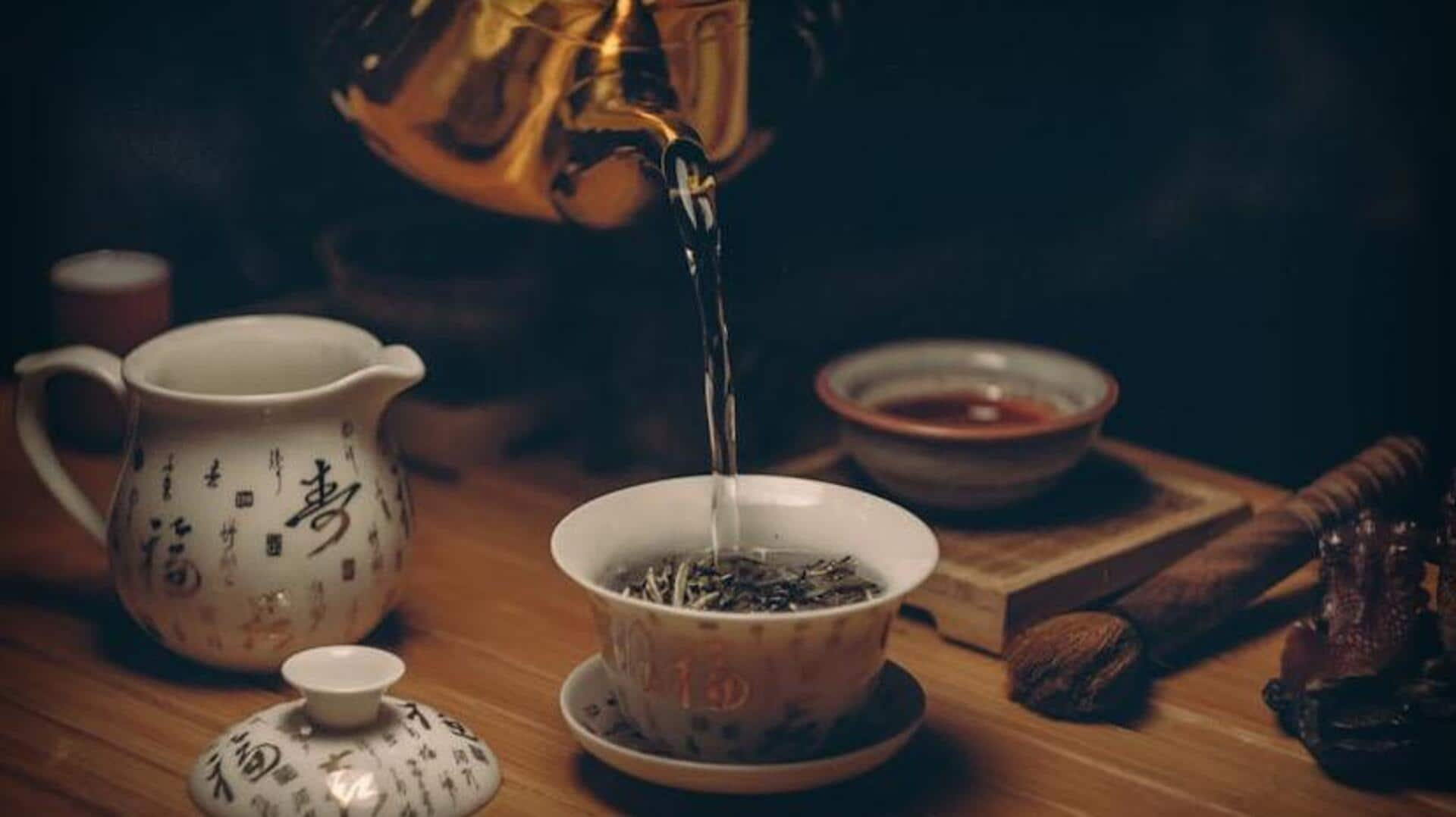
A guide to hosting a tea-tasting event
What's the story
Organizing an international tea-tasting event is a fun and exciting way to discover the world of tea, from the subtle notes of white teas to the bold flavors of black teas.
This event transports guests across cultures and traditions.
The key to success lies in thoughtful planning, from curating a diverse selection of teas to designing an inviting atmosphere for guests.
Tea selection
Selecting a diverse tea menu
Selecting a diverse range of teas is key to a successful international tea-tasting event.
Choose a minimum of five distinct varieties, encompassing white, green, oolong, black, and herbal teas.
Procure these from different countries like China, India, Japan, and South Africa to guarantee an authentic worldwide experience.
Don't forget to provide details about each tea's origin, flavor profile, and brewing instructions.
Venue setup
Planning your venue and setup
Decorate the venue to fit the global theme, with decorations showcasing the diverse world of tea.
Choose a large room with several tables where guests can sit and mingle with ease.
Equip each table with its own brewing tools like teapots or infusers and cups.
Make sure hot water is available throughout the event for brewing fresh cups.
Activities
Engaging activities for guests
To elevate your event, incorporate interactive elements.
For example, you could hold blind taste tests, challenging guests to guess the teas' varieties or origins.
Consider inviting a tea sommelier or expert for a short lecture on the history of tea around the world and its cultural significance.
Provide tasting cards for guests to jot down their impressions. This not only encourages participation but also facilitates discussion.
Promotion
Promoting your event effectively
A strong promotional effort is crucial in attracting attendees eager to discover international teas.
Leverage social media by setting up an event page with all the essential details (date, time, location, ticket price if applicable).
Connect with local community groups or clubs with members who might be interested in such events.
Provide incentives like early bird discounts or group rates to motivate people to sign up.
Dietary considerations
Catering to dietary preferences
When hosting your fancy international tea-tasting, remember that some of your guests might have dietary restrictions that affect what they can put in their tea.
If you're serving milk or sweeteners, make sure you have alternatives like almond milk or stevia available.
And if you're serving small snacks with the tea, make sure they're labeled clearly, especially if they contain allergens.